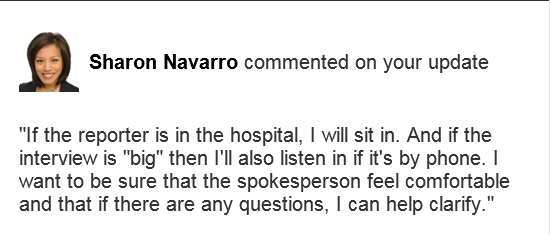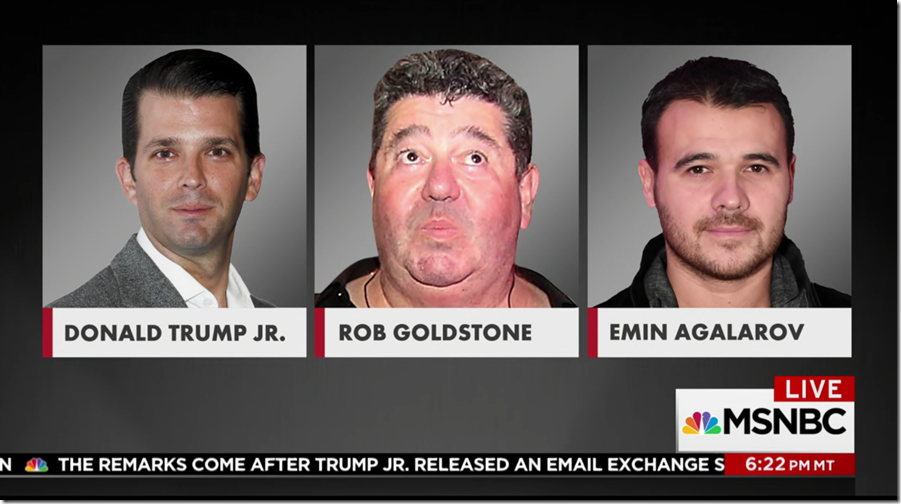Answers: Should PR Pros Participate During Interviews?
Earlier this week, I asked readers whether it was appropriate for PR pros to participate during media interviews when someone else—an executive, subject matter expert, or client—is the person being interviewed.
Many of you responded (thank you!). We heard from people via Twitter, LinkedIn, Facebook, and in the blog’s comment section, so in this post, we’ve pulled several of your comments together.
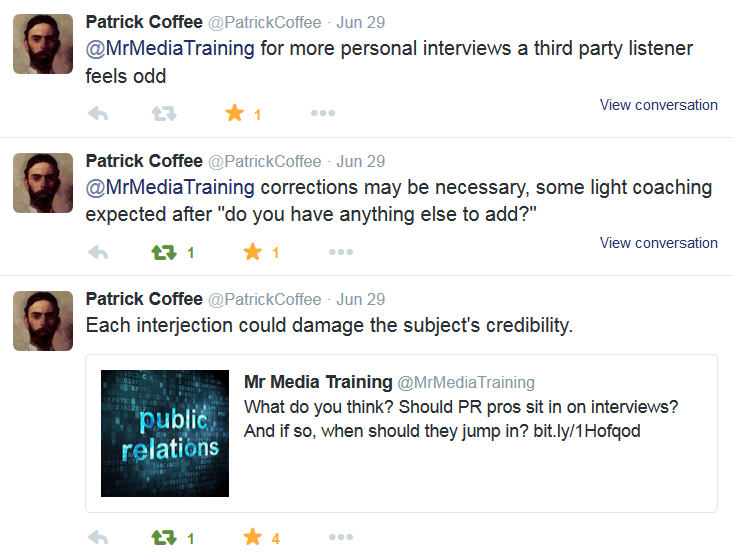
In general, I agree with Patrick’s points. But in some circumstances—such as when a spokesperson says something factually inaccurate, is about to go off the rails, or has already said something damaging—jumping in may be the better of two lousy options.
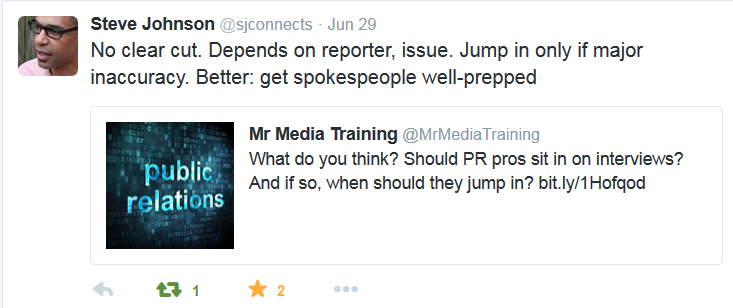
For some interviews, it’s also okay to jump in to add something useful—some PR pros possess broader institutional knowledge than a subject matter expert, whose knowledge may be deep but narrow.
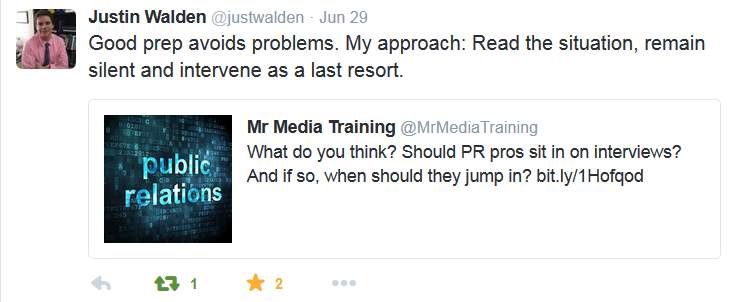
Good advice. “Reading the situation” is where the value of experienced PR pros comes into play, since these are often subjective decisions that have to be made on the spot.
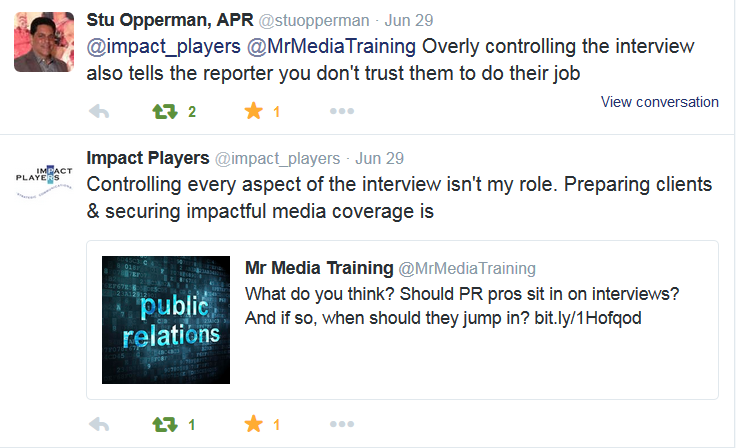
I agree in general, but I’d also maintain that protecting your client by jumping in may be necessary. That may be “controlling,” but also appropriate. Your point about preparing clients carefully is spot on; to the degree we can prepare them better before something goes wrong, we can reduce the risk of being put in such an uncomfortable position.

I agree. That’s one of the most persuasive arguments for sitting in.

Again, I agree generally, but think interventions may occasionally be the better of two bad choices.

I understand that argument, but that seems strong. Media training can’t entirely remove every bad instinct a spokesperson might have every time. We can coach to those points, reduce them, make spokespersons aware of them, etc. But a person who is quick to anger, for example, probably can’t be completely “fixed” in a single media training session. When working with such people, PR people might need to take on a babysitting function to help maintain the professionalism of the brand.
Reader Sean Mallen left his thoughts in the comments section on the blog:
“I can tell you from 30+ years as a reporter (before recently jumping to communications consulting) that having someone in the room to listen to the interview was fine by me, whether it be an in house PR person or a hired gun. And now that I’m on the other side of the divide, I recommend it. Why? Because anyone, even the most accomplished speaker who has been well-prepared can make a mistake. At the end of the interview, your colleague can advise that you mis-spoke. As a reporter, I’d have no problem in giving my interviewee an opportunity to correct a fact. However, the PR person should NEVER interrupt an interview in progress, not unless they want to make themselves the news clip.”
Sharon Navarro, who does hospital communications, added her thoughts via LinkedIn:
And Laura Creswell left the following comment on our Facebook page:
Thank you all for your great comments!
